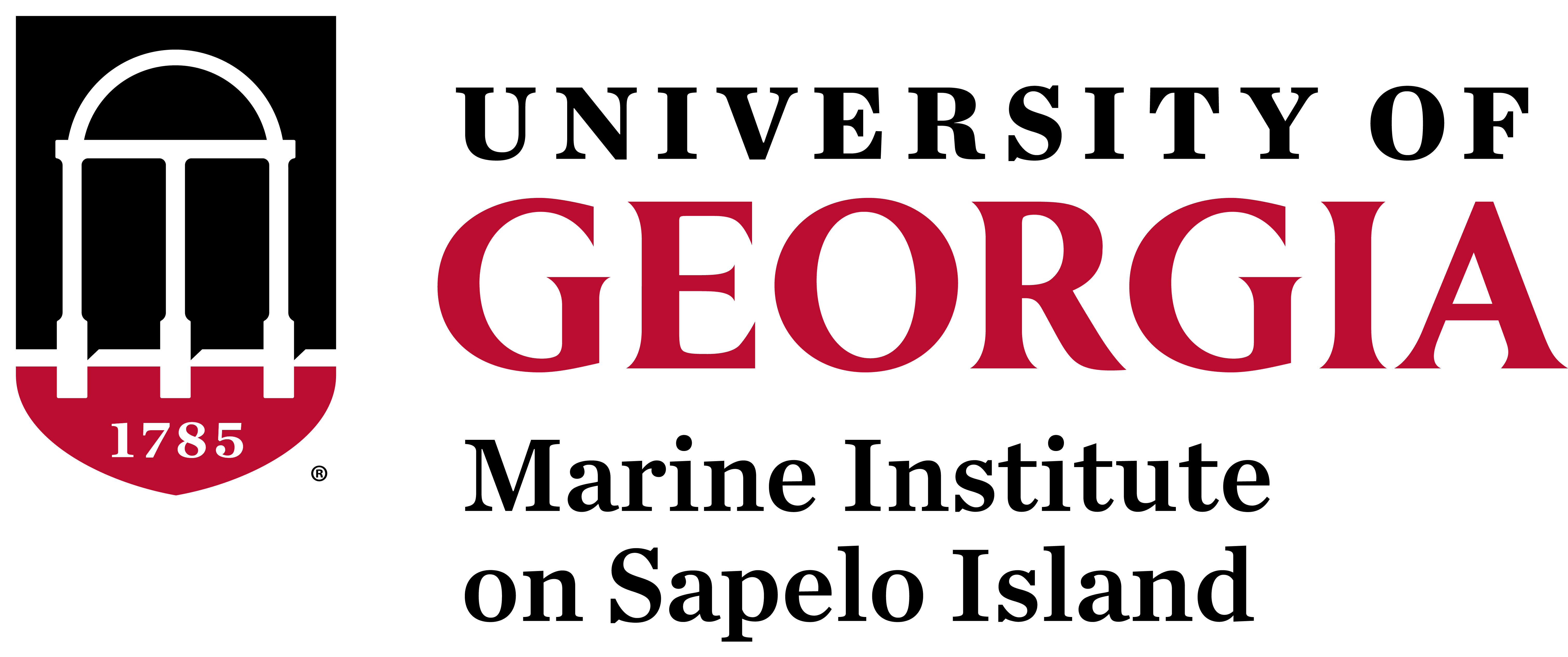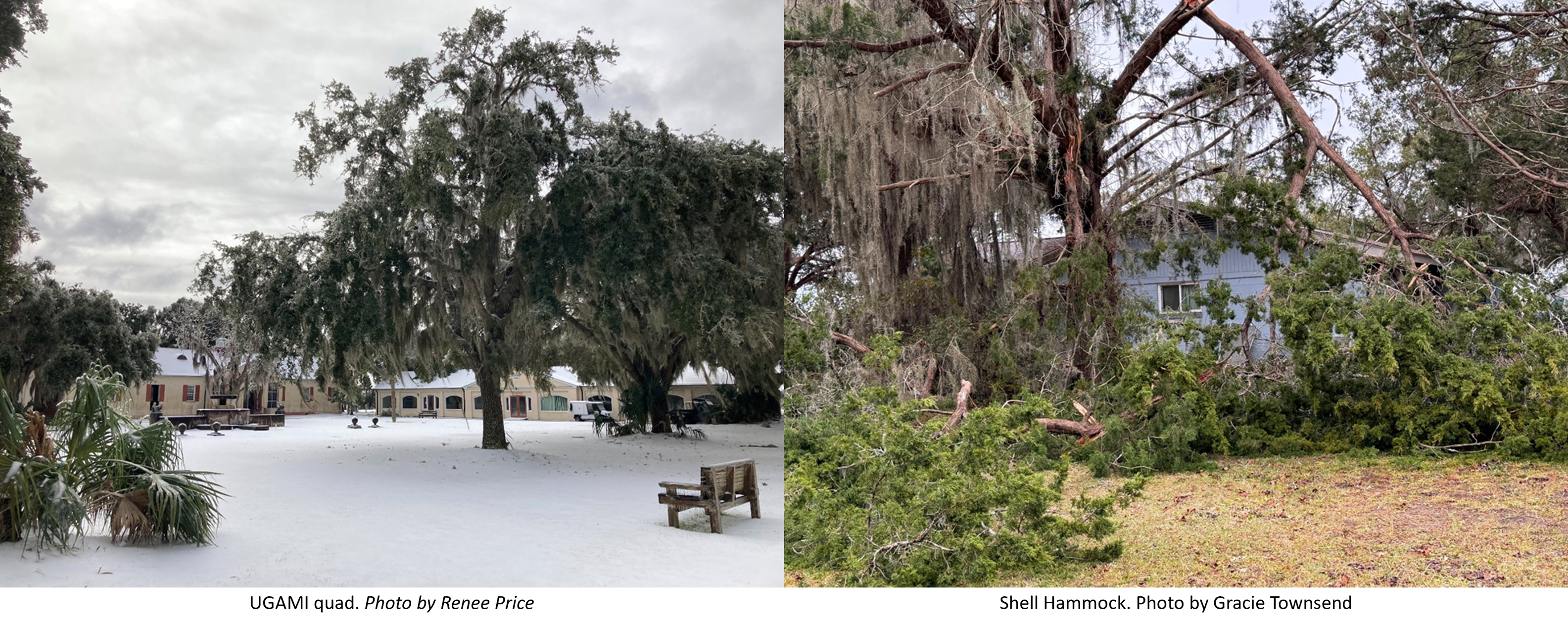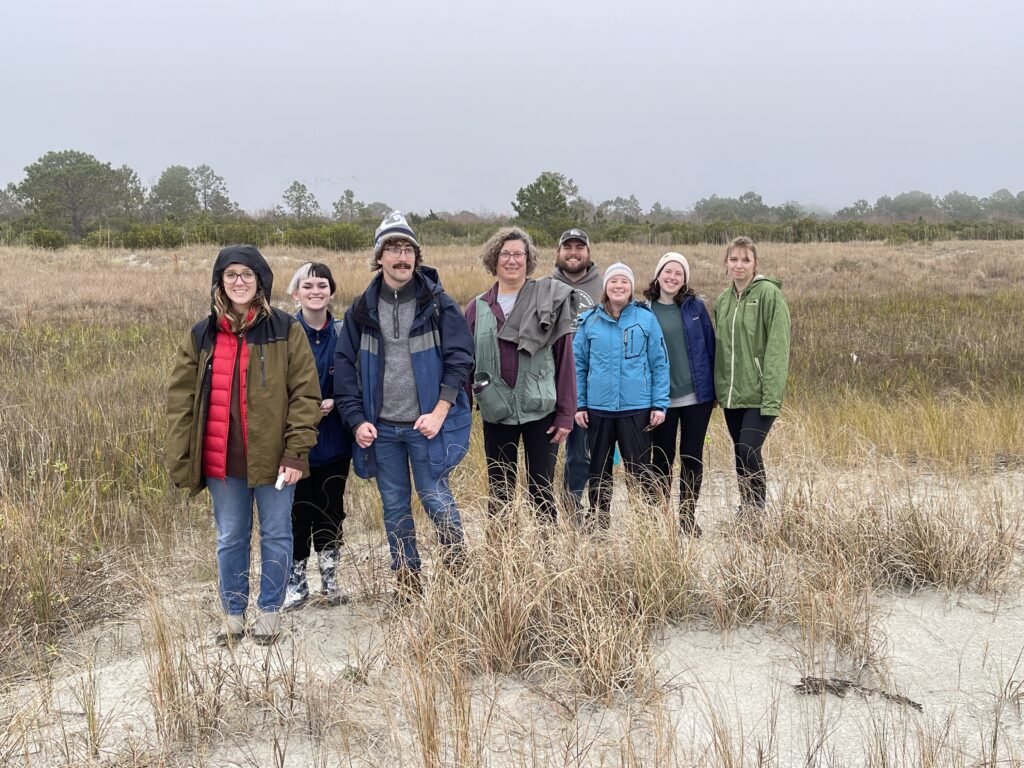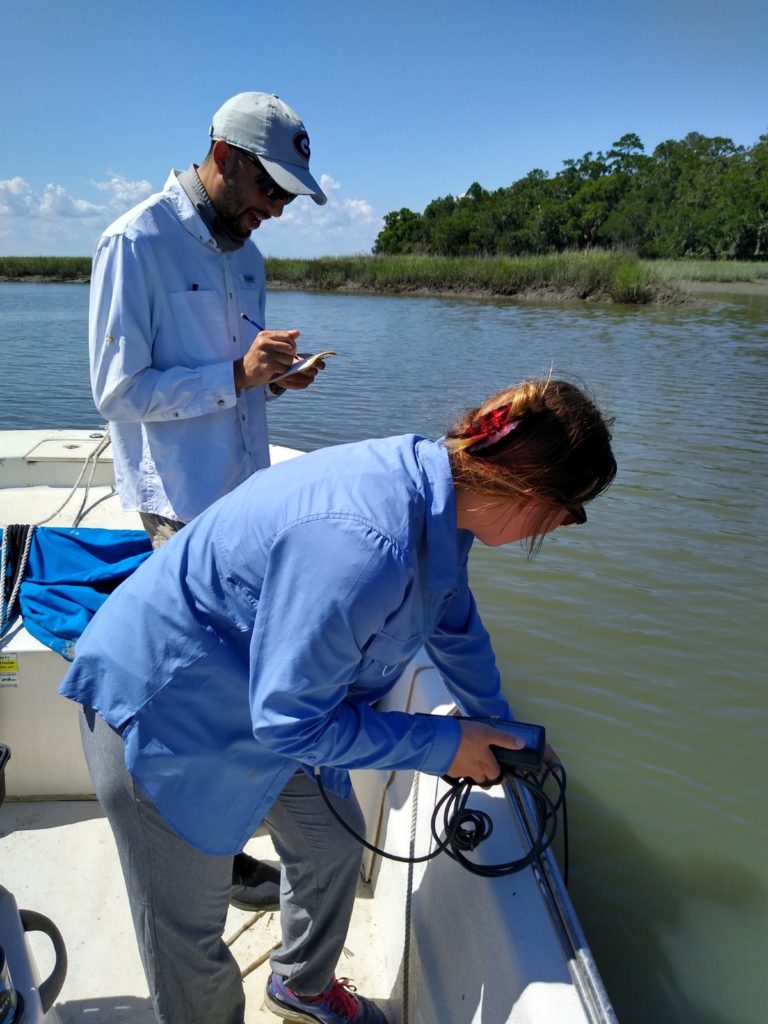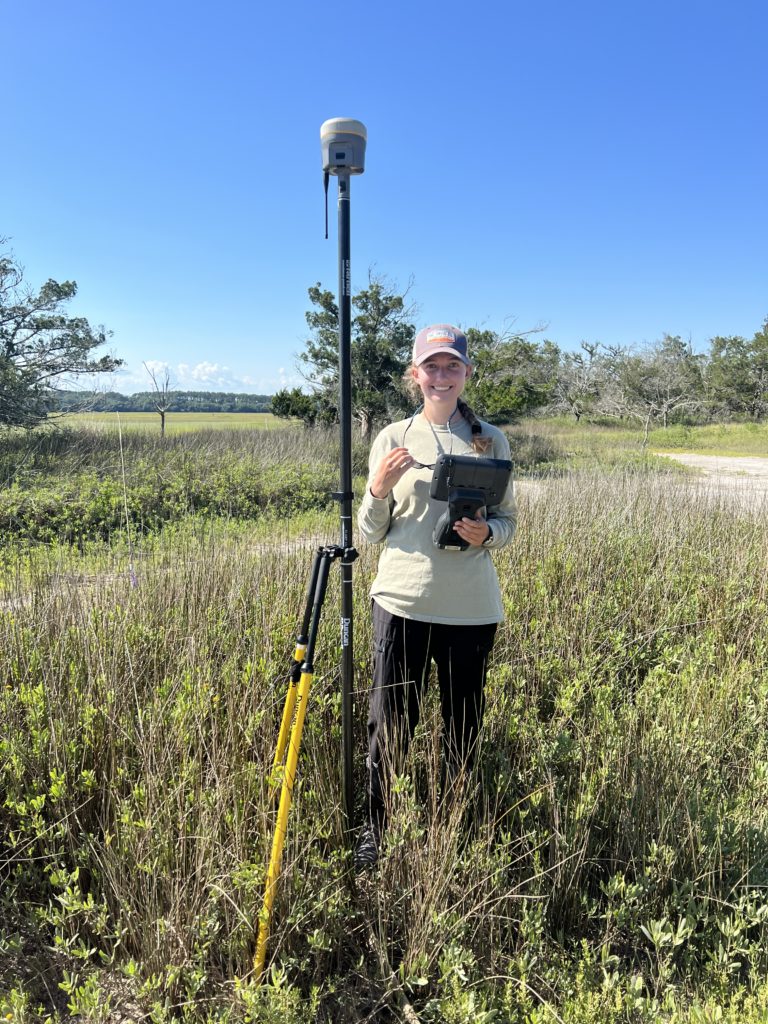In Reserve
Our very own Jacob Shalack, who was formerly the lead GCE-LTER technician, received the Patriot Award from the Georgia Employee Support of the Guard and Reserve (ESGR) committee. The award is given in recognition of a supervisor who provides support for a service member. Jacob was nominated for the award by Brendan Manley, who worked as a GCE technician from 2017 to 2020 while also serving in the Air National Guard Reserves. UGAMI was also recognized for accommodating Brendan’s leave so that he could participate in training and other duties as required. Brendan is now back in the Air Force working as a meteorologist, and Jacob is now part of the facilities team in the UGA Office of Research. See the post on UGA Today for the full story.

